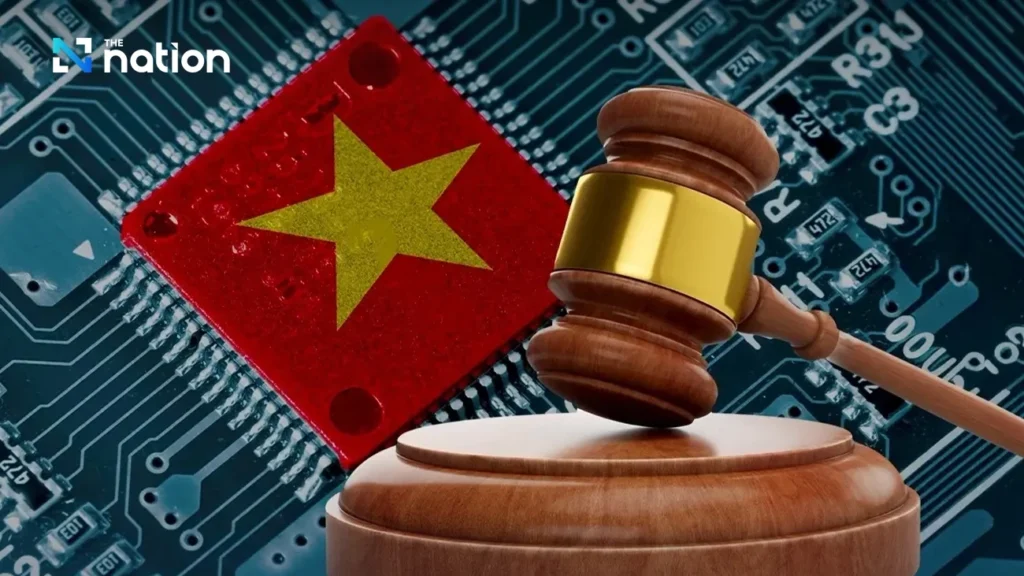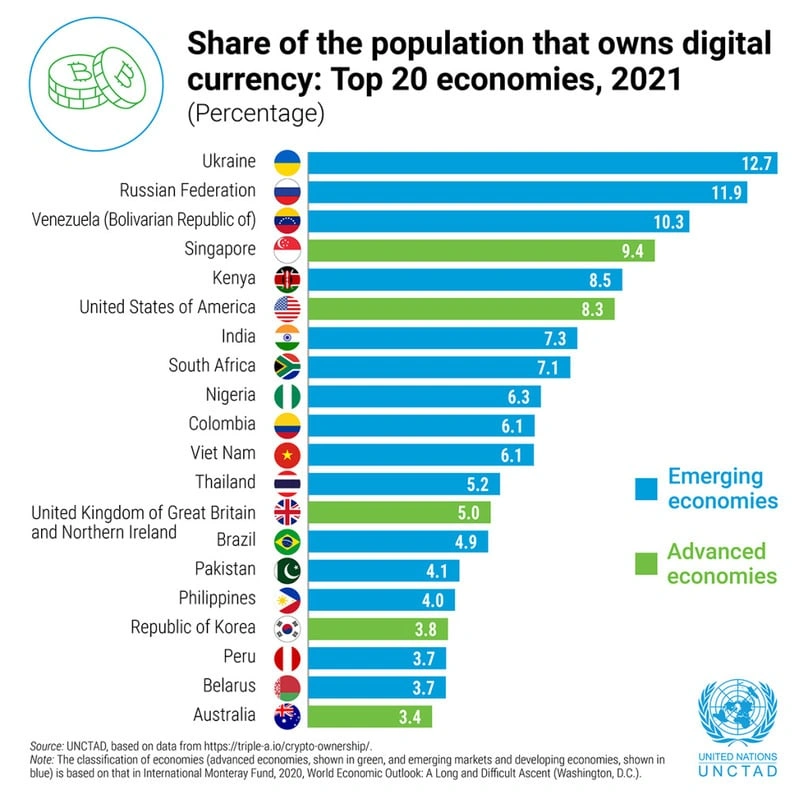The Vietnam crypto law 2025 has ushered in a pivotal moment for the country’s digital finance sector. What was once a legal gray zone has evolved into a structured framework where individuals and businesses alike can participate in the crypto economy — within defined legal boundaries. But for everyday users, the bigger question remains: what exactly can you do now, and where do the restrictions still apply? This article offers a grounded look at how the new regulations play out in real life, answering the most practical questions surrounding Vietnam’s Virtual Digital Asset (VDA) rules.
1. Is Cryptocurrency Fully Legal in Vietnam?

Credit from The Crypto Times
Yes, cryptocurrency is now fully legal for ownership and trading in Vietnam — but there are conditions. Vietnamese citizens and residents can buy, sell, and store digital assets like Bitcoin and Ethereum, so long as they do so via registered and licensed platforms. These platforms are subject to government oversight and must comply with anti-money laundering (AML) standards, user protection policies, and technical reporting systems. While ownership and investment are permitted, it’s important to remember that cryptocurrencies are not recognized as legal tender. This means that while they may be held and exchanged privately, they cannot replace the Vietnamese đồng in official commercial contracts.
2. What Is a VDA in Vietnam Crypto Law 2025, and How Does It Affect Users?
Under the new law, Vietnam classifies cryptocurrencies and other blockchain-based instruments as Virtual Digital Assets (VDAs). This includes everything from Bitcoin and Ethereum to NFTs, security tokens, and even tokenized real estate. What sets the framework apart is its differentiation by purpose. Payment tokens are treated differently from utility tokens or investment-based tokens, each falling under a separate set of obligations. For the average user, this means understanding how your digital assets are categorized directly affects whether you must report them, pay taxes, or even receive government approval for certain transactions.
3. What About DeFi and Blockchain-Based Platforms?

Credit from Nation Thailand
The law takes a progressive approach to decentralized finance (DeFi). Platforms that allow users to lend, borrow, swap, or earn yield through smart contracts can operate legally — but only if the project or business entity is registered with the Ministry of Finance. Smart contracts must be audited and user risk disclosures are mandatory. Vietnam is attempting to bring structure to a decentralized world by placing accountability on developers and platform operators without banning innovation altogether. While this adds a layer of bureaucracy, it also offers consumer protection and better transparency in a space once notorious for fraud.
4. Can I Pay or Get Paid in Crypto for Vietnam Crypto Law 2025?
Yes, in limited contexts. Vietnam still does not recognize crypto as a form of legal currency, which means no one is required to accept it for payments. However, individuals and businesses are allowed to enter into private agreements where payment is made in crypto — a model now used by freelancers, small tech firms, and even some digital services. That said, all income received in the form of digital assets must be reported and converted to Vietnamese đồng in financial statements, and tax obligations apply. The law walks a fine line: allowing innovation while anchoring it in traditional financial principles.
5. How Are Crypto Taxes Handled in Vietnam Crypto Law 2025?

Credit from Medium
The Vietnam crypto law 2025 treats crypto earnings as taxable income. Whether the income comes from trading, mining, airdrops, staking, or DeFi participation, individuals and businesses are required to declare it in annual tax filings. The tax treatment varies depending on the nature of the income — capital gains are taxed differently from business revenue or freelance income. Exchanges licensed in Vietnam will soon be required to generate tax reports for their users, similar to traditional brokerages. For now, users must self-report, but penalties for non-disclosure have become more serious under the new compliance-focused regime.
6. Are Crypto Startups and Blockchain Projects Welcome?
Yes, provided they comply with the new VDA regulations. Vietnam has made it clear that innovation is welcome — but structure is required. Any project that issues tokens, offers trading services, or builds infrastructure for digital assets must apply for appropriate licensing, submit financial and technical disclosures, and register with relevant authorities. Token issuers must provide a whitepaper, disclose the economic model (tokenomics), and submit audits where applicable. These regulations aim to reduce financial risk for users while fostering a safer environment for legitimate innovation.
7. What Are the Legal Risks Users Still Face?
Even in a legal market, risks remain — though they’ve shifted from legal ambiguity to regulatory compliance. Using unlicensed exchanges, failing to report income, or participating in unauthorized token offerings can lead to administrative fines or even criminal penalties. Vietnam has bilateral agreements that allow authorities to track foreign exchange use and retrieve data from offshore platforms. While crypto is now legal, ignorance of the new rules is no longer a valid excuse. Users are advised to check whether platforms are licensed under the Ministry of Finance’s registry and to stay informed on ongoing tax and compliance updates.
Conclusion: A Legalized Landscape with Guardrails

Credit from The Investor
The Vietnam crypto law 2025 does more than legalize — it builds a foundation. It allows users to participate in the global digital economy while ensuring the rules are clear, enforceable, and adapted to real-world risks. With the new VDA rules, Vietnam is balancing openness with accountability. Crypto is no longer an underground movement; it’s part of the country’s broader financial transformation. But that participation comes with expectations — for transparency, for compliance, and for responsibility.
Vietnam’s direction is clear: innovate, but do so within the lines. For users and businesses ready to play by the rules, this new chapter is just the beginning.




